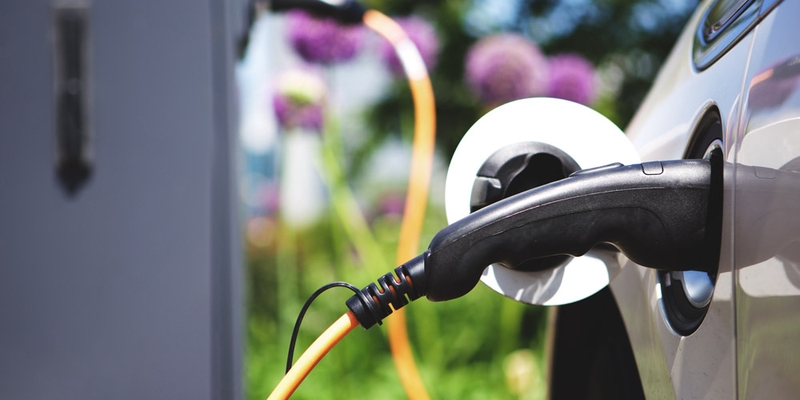
If you are not redirected within 30 seconds, please click here to continue.
Samedi: 10h – 16h HAE

If you are not redirected within 30 seconds, please click here to continue.
If you are not redirected within 30 seconds, please click here to continue.
Hybrid or Electric: Which Type of Green Vehicle is Best?

Table of Contents
Gas-powered cars are one of the biggest sources of emissions and contributors to climate change.
According to Plug’n DRIVE, a nonprofit advocacy group for electric vehicle (EV) adoption, driving electric can reduce greenhouse emissions by up to 90%.
But not all EVs are equal. Do you go all electric, which is much cleaner, but carries a hefty price tag? Or is a hybrid vehicle, which combines gas and electric engines, good enough despite the slightly higher emissions? Side by side, which one will save the planet and save you money?
The case for an electric vehicle
If reducing your carbon footprint is a priority, electric cars win with zero tailpipe emissions. And while the initial investment is costlier, electricity is much cheaper than gas and an EV has fewer maintenance issues (except tires, wipers, and fluids).
However, if you’re driving long distances, charging stations aren’t as ubiquitous as the corner gas station. And charging can take hours, depending on the charger and battery capacity, although newer models offer quicker charging with the right voltage.
The case for a hybrid vehicle
If you’re on a budget but want to reduce your carbon footprint, hybrids are a good place to start. You can choose between a traditional hybrid (gas and electric) or a plug-in hybrid electric vehicle (PHEV), whereby the gas engine only kicks in when the battery runs out; the traditional hybrid uses gas to recharge the battery. The beauty of the hybrid is that you always have a gas back up.
“They are really good for one car families or for people who do a lot of road trips,” says Cara Clairman, president and CEO of Plug’n Drive. However, the electric engine on a hybrid typically only runs at slow speeds for a small range. Also, hybrids lack the smoothness and silence of EVs and their initial acceleration is weak. They also require engine oil, transmission fluid, coolant, belt replacements, as well as batteries.
Distance capabilities: electric vs. hybrid
A fully charged EV battery can travel about 200 kilometres; however, the high-end Tesla S Model battery can run for about 651 kilometres. The price of electricity varies for battery size, but it typically costs substantially less than hybrid cars.
For example, at $438 a year for electricity, the Kia Niro has a 385-kilometre battery range. Kia’s Niro hybrid, with a range of 42 kilometres, is more than double at $960 for a charge.
Edmund’s tested the battery range of all EVs and only eight surpassed a range of 480 kilometres.
Charging time: electric vs. hybrid
EVs and hybrids both come with a level one charging cable that fits the standard 120-volt electrical outlet in your home; however, charging can take anywhere from 11 to 20 hours. Level two chargers provide 240 volts (same as your stove) and can charge a battery in about three to eight hours.
Finally, level three (or DCFC) uses direct current and can almost fully recharge an EV in as little as 30 minutes.
Some newer vehicles, like the 2021 Chevrolet Bolt, come supplied with level one and two chargers.
Charging infrastructure: electric vs. hybrid
Currently, Canada has about 5,000 charging stations that can successfully charge either a fully electric or hybrid electric vehicle. Apps such as PlugShare and ChargeHub show drivers the locations of these stations. Alternatively, drivers can check the federal government site.
Vehicle cost: electric vs. hybrid
The initial cost of an EV is almost double that of a hybrid. For instance, the Hyundai IONIQ hatchback, with a 274-kilometre battery range, starts at $41,449, according to Canada Drives. The hybrid version starts at $25,649 for a basic trim.
Similarly, the all-electric Mini Cooper SE is about $39,990, and the Volkswagen Golf sits at roughly $37,890. For hybrid models, the price is much lower: the MiniSE sits at about $29,900 for the basic trim and the Volkswagen hybrid is around $24,395.
Cost of auto insurance: electric vs. hybrid
Insuring an EV or hybrid vehicle isn’t necessarily more expensive than a fully gas-powered car.
However, insurance companies consider the overall value of the car and the cost to repair the vehicle when determining your car insurance premium. So, because EVs and hybrids are still not mainstream, replacing parts or a battery is still more expensive and could result in a slightly higher insurance rate. The good news is that many insurance providers offer discounts for green vehicles.
Don't waste time calling around for auto insurance
Use RATESDOTCA to shop around, and compare multiple quotes at the same time.
Vehicle rebates: electric vs. hybrid
The federal government’s iZEV rebate program offers $5,000 for both EV and hybrids, but only half that amount for cars with batteries below 15 kWh — typically used in hybrids.
Provincially, there are generally equal incentives for hybrids and EVs, though none exist in Ontario anymore.
BloombergNEF forecasts that EVs of all types will eventually cost the same to manufacture as gas-burning cars. This means that an environmental and affordable car will one day be mainstream, which is good news for mother earth.
Get money-saving tips in your inbox.
Stay on top of personal finance tips from our money experts!










